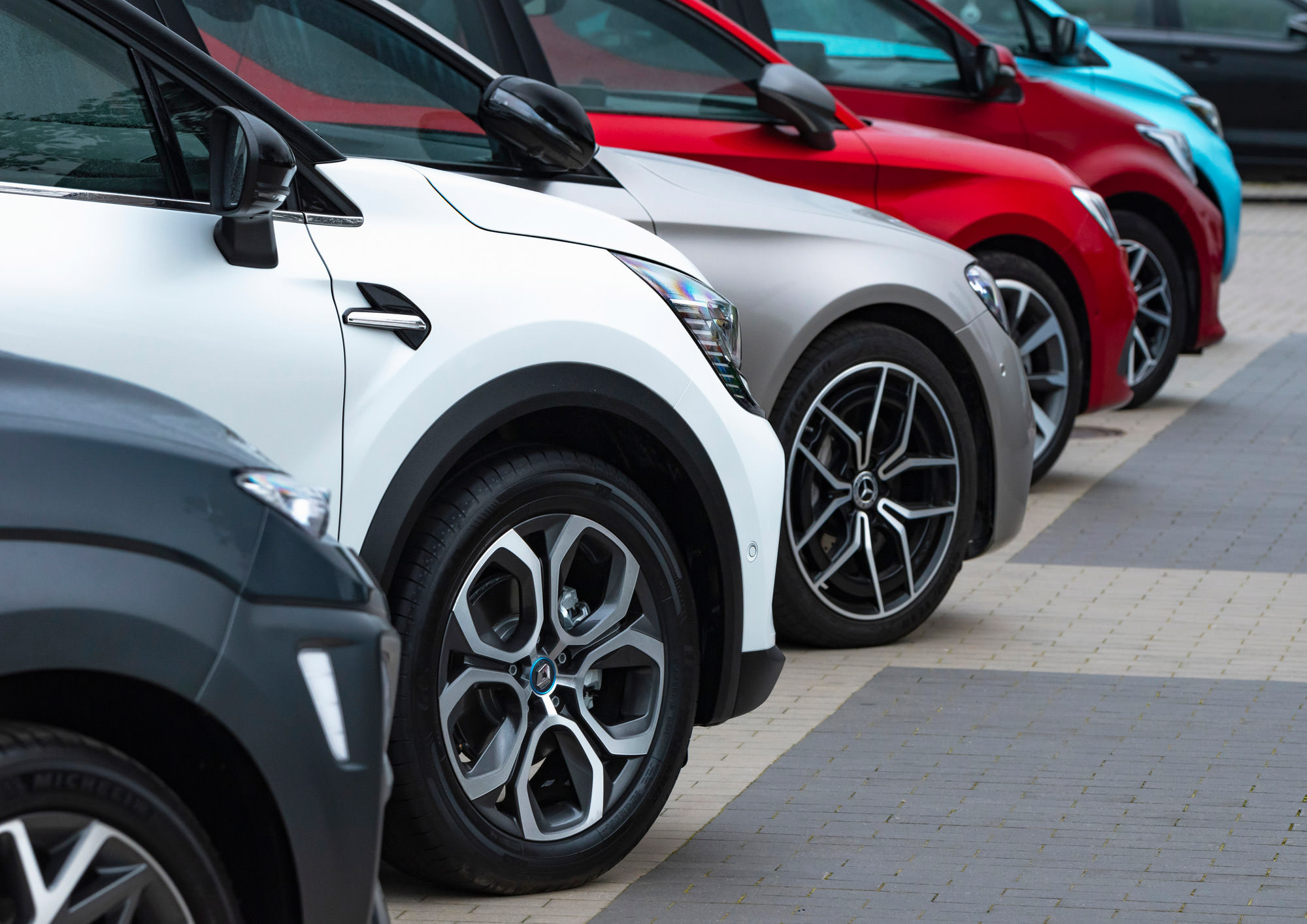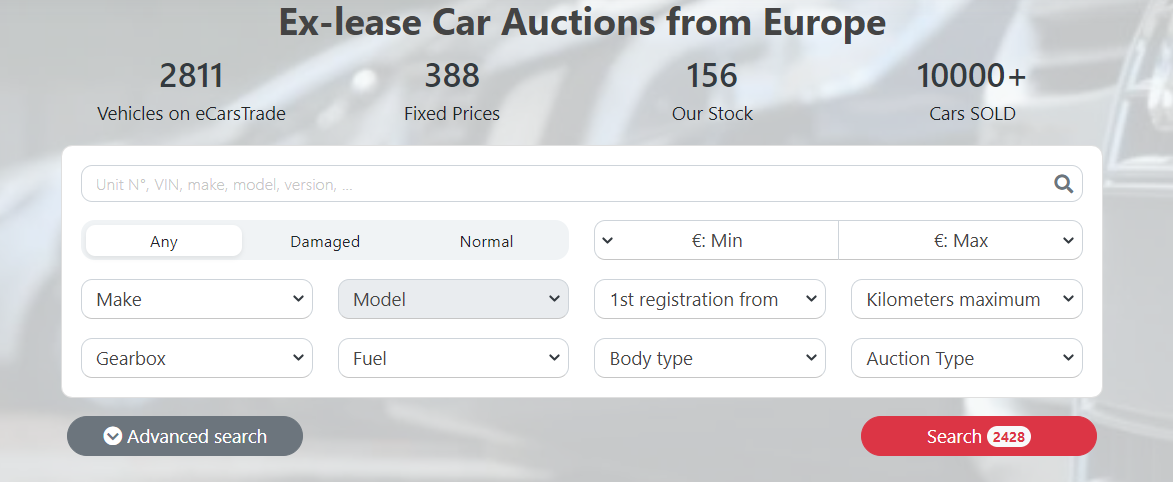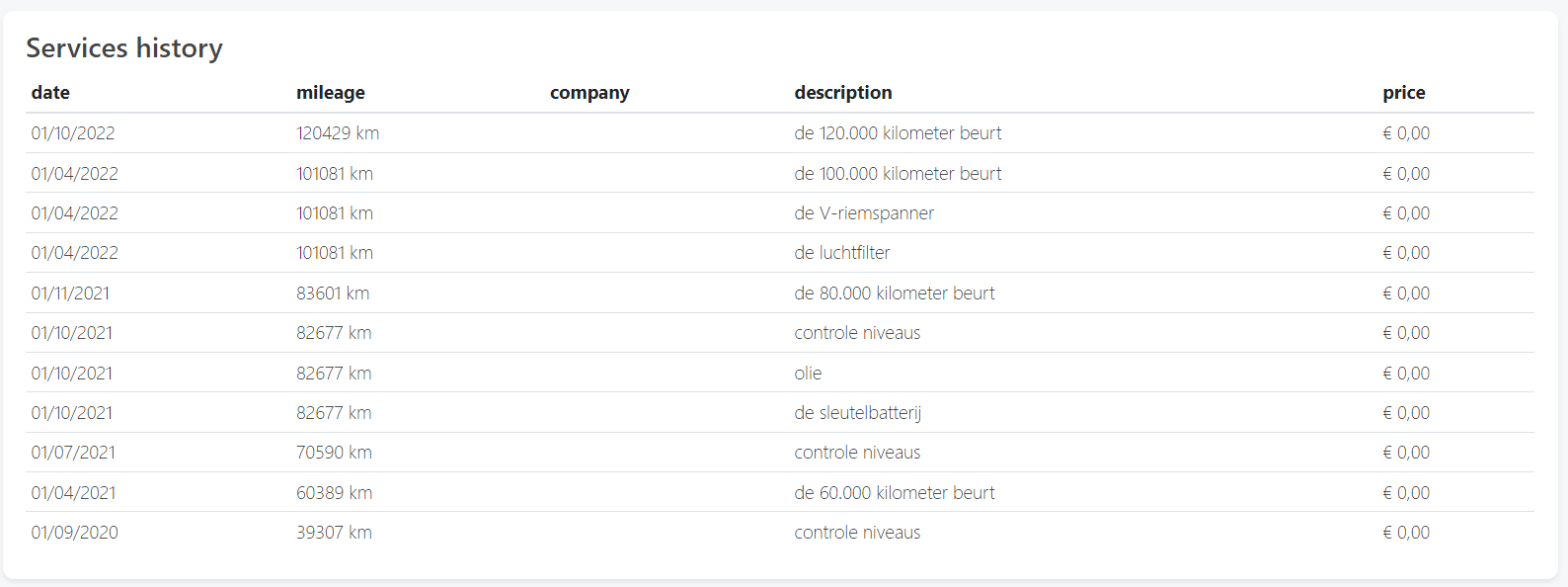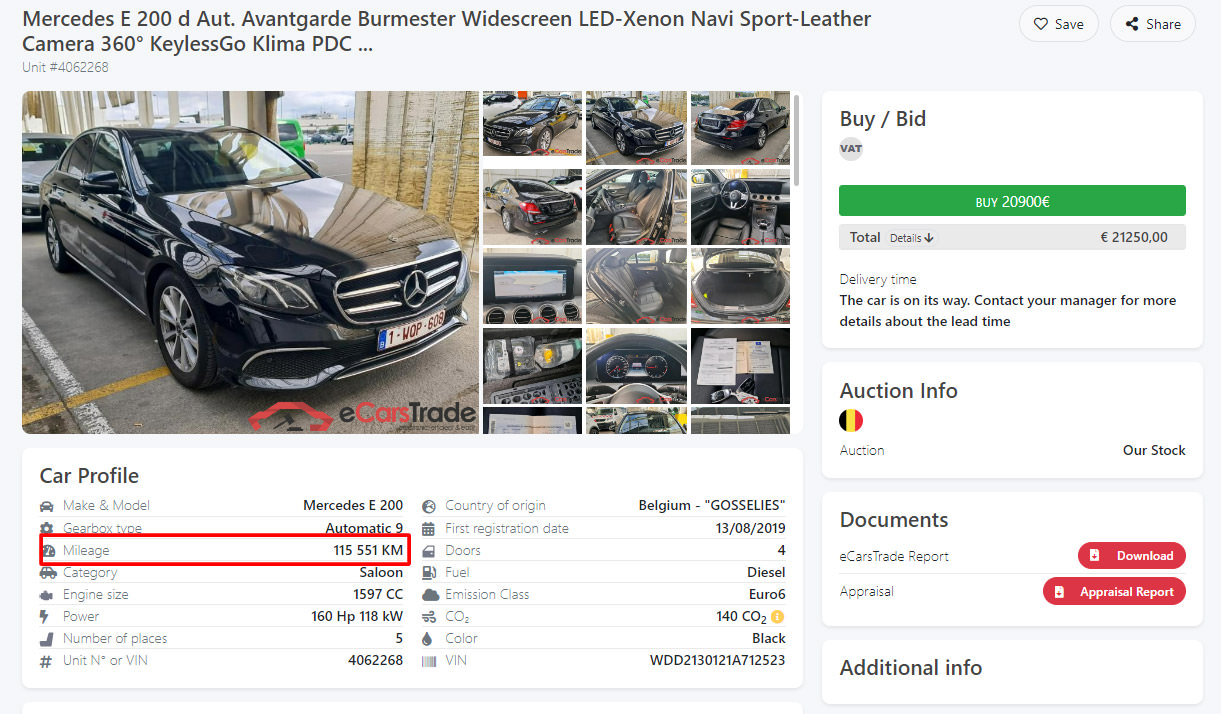- Blog
- The Trader's Guide to Buying a Used Car: 6 Must-Ask Questions
The Trader's Guide to Buying a Used Car: 6 Must-Ask Questions
Discover essential questions for successful used car trading. Find great deals at eCarsTrade, your trusted partner in the automotive market.

Used car traders have many options to choose from when supplying vehicles for their dealerships. With many options available, it’s important to make wise choices and select only adequately priced, quality cars that fit your delaership’s brand.
To help you pick winners, we’ve made a list of seven essential questions you should ask when buying used cars as a trader. These questions will help you match your supply to the needs of your buyers, as well as help you avoid unnecessary costs and conflicts with your customers.
Let’s start with a question on market needs.
#1 What Kind of Used Car Is My Buyer Looking for?
As a savvy used car trader operating in the European market, understanding your buyers' preferences is key to making smart inventory choices. Let's dive into how staying attuned to your market can help you select the right used cars for your dealership.
→ Market Trends
It's essential to keep your finger on the pulse of the automotive market. For example, consider the recent surge in demand for battery-electric vehicles (EVs). In the last quarter of 2022, EV sales skyrocketed by over 30% compared to the same period in 2021. This growth can be attributed to factors like fluctuating gas prices, government EV subsidies, technological advancements, and the looming possibility of a complete ban on new internal combustion engine (ICE) vehicle sales in the EU in the near future.
What does this mean for you? Well, if you had been closely following global news and European legislation, you might have anticipated this shift and stocked up on EVs ahead of the curve. Knowing market dynamics can guide your inventory decisions effectively.
→ Local Preferences
Each European country has its unique automotive preferences driven by factors like native car manufacturers and local driving conditions. Take Italy, for instance, where smaller models from domestic brands like Fiat and Lancia dominate the market. The narrow Italian streets and limited parking spaces make these compact cars a practical choice.
Likewise, in your area, you may notice certain makes and models that are overwhelmingly popular. Identifying these local preferences can be a goldmine for your dealership. Are there particular vehicles that dominate the streets in your city?
→ Staying Informed
To truly get to know your buyers, stay connected with the automotive world. Keep an eye on global events, changes in legislation, and emerging trends. Additionally, engage with automotive publications, forums, and blogs. These sources can provide valuable insights into consumer preferences and emerging market trends.
→ On-Demand Buying
Finally, a good way to find out what your buyers need is to simply listen to them. In many cases, customers will already have a good idea of what they’re looking for in a used car in terms of car type, mileage, or even the exact make and model. In those cases, the key to a successful sale will lie in your ability to deliver the car with the wanted specs as soon as possible.
Remember, understanding what kind of used cars your buyers are looking for starts with a keen awareness of both global and local factors. By staying informed and adapting to market shifts, you'll be well-prepared to meet your customers' needs and make informed choices when adding vehicles to your inventory.
#2 Is the Car Seller Trustworthy?
When it comes to sourcing used cars for resale, you need to ask yourself if you can really trust the seller to deliver the car they promised. Why? Because you might unknowingly buy a car in bad shape and sell it to a customer expecting a stellar service from you. That’s a serious breach of trust and it may cause you to lose that customer and do harm to your brand.
Used car traders have multiple options available when they’re in the market for their stock. This includes:
- Private sellers
- Used car dealerships
- Online selling and auction platforms
Private sellers are the riskiest option here because individuals selling their cars don’t have a reputation to look out for and you can’t really ask around to find out if the seller has integrity.
Dealerships, conversely, are much easier to verify. If you’re starting a relationship with a new seller, you can always rely on reviews from other buyers, and their reputation in the local business scene to ensure you’re working with a quality supplier. However, local dealerships have limited stock and it could be difficult to arrange a steady supply of exactly the types of cars you want to buy.
But online dealers don’t have that problem. They often function as aggregates, pulling together used car offers from multiple sources to supply you with exactly what you need, and you still have an option to evaluate their service by checking online reviews.
eCarsTrade is such a platform. It offers resellers thousands of cars of all makes and brands, as well as any mileage range, price, and condition. All you have to do is use the handy search bar and filtering options to narrow the search down and find the perfect car, which always comes with all the data you need to make an informed purchasing decision.

eCarsTrade: Find what you need in just a few clicks
But there’s more. Most used cars on offer also come with a full service history that’s readily available for viewing to members of the platform, making this resource a very safe option for buyers.
 See when the cars was serviced and what kinds of repairs it’s had
See when the cars was serviced and what kinds of repairs it’s had
Our platform nurtures relationships with leading European car lease companies and every vehicle has undergone maintenance with its official brand dealerships, meaning each service history is verified and the mileage on the car is guaranteed.
As a used car dealer, you know that reputation is everything in our business. So make sure you always ask yourself whether your sellers are trustworthy and verify the car’s condition to ensure you’re offering your own clients the best possible deal.#3 What Kind of Mileage Does The Used Car Have?
Understanding a used car's mileage is crucial when making a purchase decision. Mileage represents the distance a vehicle has traveled since its manufacturing date, but it also offers valuable insights into the car's overall condition and value.
In general, higher mileage on used cars often means increased wear and tear, potentially leading to higher maintenance costs. However, this doesn't tell the whole story. Some car brands are remarkably durable, offering reliable performance over extended periods.
On the flip side, used cars with mileage on their odometers typically come at a lower price point. This affordability can be attractive to budget-conscious buyers. Essentially, it allows savvy buyers to acquire a used vehicle that promises reliable service at an affordable price.
As a rule of thumb, cars tend to depreciate by around one-fifth of their value for every 32,000 kilometers traveled. Keeping this calculation in mind, it becomes much easier to estimate the right price for your purchase, which is why you should always take a look at a used car's mileage when forming a buying decision. If you’re using eCarsTrade, this is easy because every car on the site has a guaranteed mileage conveniently displayed.

eCarsTrade offers cars of any mileage: from almost new to frequently used
However, deciding what counts as "good mileage" for a used car isn't a straightforward task. While there are general benchmarks, such as expecting a five-year-old car to have been driven between 80,000 and 100,000 kilometers, these figures may not always apply.
Different cars are used in different ways. For instance, commuter and family vehicles often rack up higher mileage due to daily commutes, school runs, and family trips. On the other hand, luxury cars are typically used for leisure and experience less wear and tear.
In summary, when evaluating a used car's mileage, it's essential to consider multiple factors beyond just the distance traveled. The type of vehicle, its usage history, and individual needs all play crucial roles in determining what constitutes "good mileage" for your specific purchase. By striking the right balance between mileage and these other considerations, you can make an informed decision when buying your next vehicle.
#5 Does the Used Car Have Any Damage?
One critical question that needs to be answered before you commit to buying is whether the used car you're considering has any damage. After all, damage to the car will impact it’s price and it will probably mean you’ll need to invest in repairs before you sell the used car to its next owner. In that sense, it's essential to recognize two primary categories.
→ Minor Accidents
These cars have typically been involved in minor incidents resulting in superficial damage. This could include scrapes, dents, or minor cosmetic issues. While they may appear damaged on the surface, these vehicles often hold the potential for cost-effective repairs. With the right expertise and access to suitable repair tools and products, you can restore these cars to their optimal condition, making them appealing assets for resale.
→ Major Accidents
In contrast, cars in this category have experienced more substantial damage. This can mean severe issues like crash damage, fire damage, or flood damage. In many cases, insurance companies consider the repair costs to exceed the car's current value, leading to their sale in an as-is condition. However, for automotive professionals with repair shops, there's still potential for profit through part salvage and comprehensive repairs.
Fire and flood damage, while presenting challenges, offer opportunities for those willing to invest time and effort. eCarsTrade regularly features accident-damaged cars in our online auctions, providing you with access to this market segment. Every majorly damaged car will have an extensive photo library detailing the damage to enable you to make a full inspection and assess the damage.
Cars with major damage still have a lot to give to their future owners
As a seasoned trader, your expertise and knowledge enable you to leverage damaged cars as valuable assets for your business. By understanding the types of damage, knowing where to find these vehicles, and conducting thorough inspections, you can make informed decisions and potentially turn damaged cars into profitable business within the used car market.
#6 Can I Turn a Profit by Buying a Slightly Damaged Car?
Turning a profit often involves thinking outside the box. One strategy worth considering is buying slightly damaged cars and repairing them yourself. This approach can significantly boost your profit margins, and it's a path that many successful traders have taken.
The key to profiting from slightly damaged cars lies in your ability to make effective repairs. Here's a brief overview of how to address some of the common minor damages:
- Scratches: Depending on the depth of the scratch, you can use clear paint pens, color paint pens (custom-matched to the car's color code), or scratch removers to address surface imperfections.
- Dents: Minor dents can often be fixed using household items like plungers or suction cups. For more complicated cases, glue pulling techniques or PDR (Paintless Dent Removal) may be employed.
- Windshield Cracks: Repair kits designed for minor cracks can be effective in making them less noticeable, though extensive cracks may require windshield replacement.
- Damaged Interior: Tears in carpets, vinyl, or leather can be repaired with simple techniques, and bad odors can be eliminated using baking soda.
- Alloy Wheel Damage: Alloy repair kits typically include sandpaper, filler, and paint to address scratches on the edges of alloy wheels.
- Bumper Cracks: Repairing bumper cracks involves removing the bumper, sanding, sealing, gluing, and painting. It's slightly more complex but manageable with the right tools.
- Car Rust: Surface rust can be removed by sanding the affected area, applying fiberglass paste and body filler, and repainting.
Vehicles that have been repaired and restored usually fetch higher prices in the market compared to those with visible damages. Moreover, purchasing cars with minor damages typically comes at a lower cost, giving you the opportunity to increase your profit margins.
It's worth noting that minor damages are commonplace in the second-hand car market, and smart traders use these opportunities to enhance vehicles and sell them at a premium.
Therefore, the short answer here is yes, you can turn a profit on slightly damaged cars and it’s worthwhile to learn how to repair this kind of damage. It allows you to increase profits, offer higher-quality vehicles to your customers, and take advantage of cost-effective opportunities within the market.
#7 How Do I Get the Car Delivered to My Lot?
Getting a locally sourced car to your lot is easy. However, when it comes to getting the cars you've purchased from another country delivered to your lot, logistics play a crucial role. The process of transporting vehicles has a direct impact on your profit margins, so it's essential to plan it carefully.
The key factor in car delivery is finding the right balance between delivery time and cost. Quicker transportation options are often more expensive, unless you're dealing with a well-established route with regular vehicle transportation services.
Distance and destination also affect both the time and cost of delivery. To ensure a smooth and cost-effective process, it's crucial to find a reliable logistics partner. This may take some time, but with the right match, you can save both time and money.
At eCarsTrade, we offer on-request delivery options to wherever in Europe you are. We can help make the delivery process fast and hassle-free for you, ensuring your newly purchased vehicles reach your lot efficiently.
In addition to planning the logistics of car delivery, you must also consider vehicle registration and taxation. These requirements can vary from country to country, even within the European Union. Each state may have different tax rates, documentation requirements, and regulations for registering imported used cars.
For instance, in Portugal, you can find platforms like Imposto Sobre Veiculos and eportugal that provide information on vehicle taxes and registration. In different regions of Spain, registration fees can differ based on factors such as the car's age, engine size, and CO2 emissions.
It's essential to stay informed about these requirements and costs to ensure a smooth import process for your used cars. With the right strategy, tools, and partnerships, you can tap into the lucrative and profitable European used car market, which is predicted to reach €910 billion in 2025, according to ResearchAndMarkets.
Ask the Right Questions and Build Your Used Car Inventory
In conclusion, as a trader operating in the world of used cars, asking the right questions is your compass to success. From understanding buyer needs and evaluating potential damages to streamlining logistics, these inquiries are your guide.
At eCarsTrade, we're your trusted partner in this journey. Every car advertised on our platform comes with a wealth of information, including full technical specs, an extensive photo gallery and a detailed service history to enable you to find answers to each question we covered in this article, and more. Join eCarsTrade today to elevate your trading game, because when it comes to buying used cars, the right questions lead to rewarding deals.
_01JE9WH8CRTMG3B3WDH56WNJHD.png)

